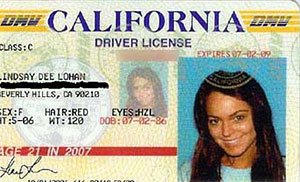
Since last year, the Humane Society, along with other animal rights groups and horse enthusiasts have been working towards making the slaughter of horses for consumption illegal in the United States.
There are only three horse slaughterhouses in the US and the majority of the horse meat is exported to Europe and Asia.
While attempts to bring about an outright ban on slaughtering horses for meat have failed, animal activists succeeded in getting Congress to cut funding for salaries and expenses of horse meat inspectors. I'm guessing the strategy goes along the lines of 'if they must eat, make them regret it later'.
As
a previous blog can attest to, I am very open minded about my meat. Hence, I have never understood how North Americans can a draw a line between which animal is consumable and which ones are not.
I could use the usual arguments that what we consider normal (ie eating beef) is considered inedible in other cultures (ie Hindu), or that our dependence on a limited meat source will literally be the death of us if disease were to claim every chicken, pig or cow. But how about this argument: unusual meats are delicious!
What I've eaten:
- snail (very good)
- duck (greasy but deeeelish)
- partridge (deliciously delicate)
- rabbit (gamey)
- boar (very good)
- moose (kind of tough)
- snake (too many bones)
- shark (fish is better)
- ostrich (very lean)
- frog legs (really does taste like chicken)
- octopus (relatively tasteless)
What I would like to eat:
- human (or Hufu)
- beaver
- horse
- seal
- kangaroo
- lizard
- goat
- lions
- tigers
- and bears
- whatever else is not endangered
But back to the matter of eating horses. I understand that horse lovers find it distasteful to consume horses because of the special affinity they have with these animals. For the same reason, I will probably never eat monkeys, dogs, or cats. However, it is presumptuous and culturally ignorant to dictate what people can and cannot eat.
Animal activists have complained that the horse slaughterhouses are inhumane in their treatment of the animals, using grisly and inefficient means of execution. To me, the logical solution isn't to stop the slaughter of horses but to create a more humane system.
Dr. Temple Grandin created a livestock handling system widely in use in the US and around the world that is sensitive to animal psychology and thereby less stressful to the animal.
Thankfully, in Canada, there is no move to make the consumption of horses illegal or difficult. Long live 'quack and track'!
 Canadian literary giant, Margaret Atwood, author of best-sellers like The Handmaid's Tale and Cat's Eye, has invented a robotic arm.
Canadian literary giant, Margaret Atwood, author of best-sellers like The Handmaid's Tale and Cat's Eye, has invented a robotic arm.



